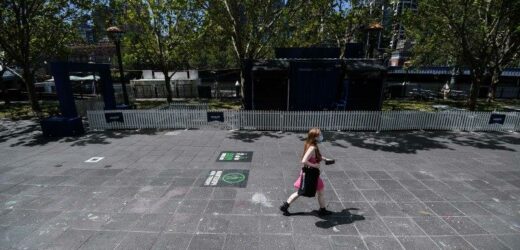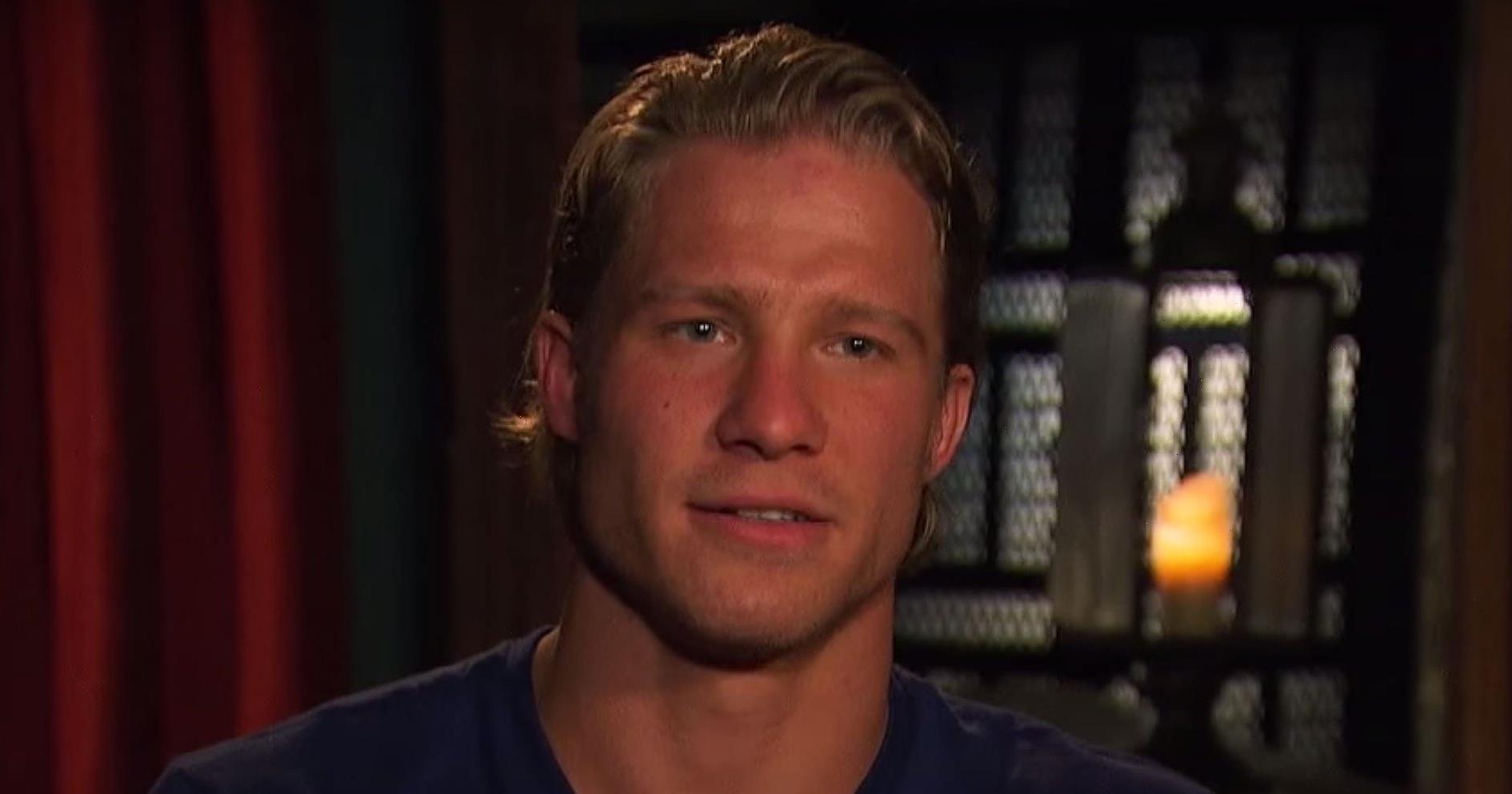For our free coronavirus pandemic coverage, learn more here.
Victoria recorded 25,526 new COVID-19 cases on Saturday and 23 deaths, as the Andrews government announced an extension of the commercial tenancy relief scheme allowing small businesses to defer rent.
The scheme was due to end on Sunday after being introduced in the first quarter of 2020, and the extension means deferred rent will automatically roll over for enrolled businesses with a turnover of under $10 million. Businesses also have to have suffered a more than 30 per cent drop in turnover.
A woman walks through a near-deserted Southbank in Melbourne on Thursday morning. Credit:Joe Armao
Innovation Minister Jaala Pulford said small businesses were facing supply chain challenges, staff shortages and customers concerned about moving around the community given high case numbers and the scheme sought to ease the pressure on those businesses for two months.
“That’s in recognition of the particularly acute nature of the challenges being experienced by small and family businesses and our desire to support them through this now,” Ms Pulford said. “We know that our business community, not only is the lifeblood of the Victorian economy, but our small family businesses are the lifeblood of our communities as well.”
Speaking at the same COVID-19 update, COVID-19 response commander Jeroen Weimar said the recent changes to counting positive cases by including rapid antigen tests had provided an invaluable data point for authorities trying to map the current outbreak. More than 12,600 Victorian cases were diagnosed through PCR tests, and another 12,857 were self-reported from rapid antigen tests.
There are 227,105 active cases in Victoria, 1054 people in hospital, 115 in ICU and of those, 30 are on a ventilator.
Mr Weimar said 47 per cent of people in hospital had not been vaccinated, while 74 per cent of people in ICU had not had a dose of a vaccine.
The people whose deaths were reported on Saturday were aged in their 30s, 50s, 70s, 80s and 90s, health officials said. Around the country a total of 54 new deaths were recorded, including 20 in NSW, six in Queensland, four in South Australia and one in the Northern Territory.
There have been 1681 COVID-related deaths in Victoria since the pandemic began, although the Health Department said this number included one fatality that had been counted twice and that the number would be officially updated on Sunday.
NSW has reported 48,768 cases, 27, 020 from PCR tests and 21,748 from self-reported rapid antigen tests.
With 23,938 coronavirus vaccines administered in Victoria’s state-run hubs on Friday, around 93 per cent of the population aged over 12 have received two doses of a COVID-19 vaccine, while 22 per cent of those aged over 18 have received a booster dose.
Federal Health Minister Greg Hunt said the country had achieved a 95 per cent vaccination rate for people aged over 16 after a record-breaking three days.
More than a million vaccines were delivered in the past three days, Mr Hunt said, a record for any immunisation program in Australia’s history.
“We have achieved the 95 per cent vaccination rate. That is often referred to as a full vaccination level, but we want to go further,” Mr Hunt said.
“We want to continue to encourage Australians to come forward and to see that – which is a figure that has surpassed almost all possible predictions that were made at the outset of the pandemic and of the rollout – as an achievement for all Australians but in particular for everybody associated with the rollout.”
The strong vaccination turnout comes as Victorian authorities confirmed they would begin using the state’s quarantine hotels to house virus patients from next week in a bid to free up hospital beds.
Mr Hunt said climbing cases around the world highlighted the need for more work on Australia’s vaccines despite the achievement.
“There are real signs of hope and it’s a very challenging time. It’s a challenging time for the world,” he said. “We saw that in the last few days the global official numbers have passed 4 million up from 500,000 a day before Omicron, and that’s the official numbers and we know the global numbers are inevitably vastly higher than that.
Professor Allen Cheng, who co-chairs the Australian Technical Advisory Group on Immunisation, said the nation’s chief vaccine advisers were now weighing up whether a COVID-19 vaccine, that specifically targets the highly mutated Omicron variant, will be needed in Australia to stem an outbreak currently infecting tens of thousands of people a day.
One such vaccine is being made by pharmaceutical giant Pfizer and is set to made available from March.
“All of this is on the table,” the infectious disease physician and epidemiologist said. “But it is too early to make the call yet. We need to wait for the data.”
Professor Cheng said the need for a second booster later this year could not be ruled out, especially if a more infectious, virulent and vaccine-evasive strain emerged or if Omicron continued to push healthcare systems to the brink.
Epidemiology Professor Mary-Louise McLaws.Credit:Louise Kennerley
Epidemiologist steps back to fight brain tumour
One of Australia’s top epidemiologists – whose name and voice has become familiar to many households over the past two years of the pandemic – will take time off to receive treatment for a brain tumour.
UNSW epidemiology professor Mary-Louise McLaws, an adviser to the World Health Organisation on COVID-19, announced via Twitter on Saturday that she was diagnosed after a severe headache on Thursday.
“I will now be on a month’s sick leave from UNSW and WHO. Thank you media for helping me spread knowledge. Now it is time with my family,” she said.
Government pushes ahead with medi-hotel plan
The state government on Friday confirmed a new system that will result in COVID patients being transferred to hotel quarantine from Monday to reduce demand for hospital beds.
Two quarantine hotels were being transformed into medical facilities as part of a partnership between the government, Northern Health and Royal Melbourne Hospital and would begin taking patients in from Monday.
“The medi-hotels will provide us with an extra buffer at a time when COVID-19 numbers and related hospital admissions are rising,” Acting Health Minister James Merlino said.
“Patients will receive high-quality care from health professionals in a hotel setting, making even better use of the resources we have available.”
With Jenny Noyes, Melissa Cunningham, Aisha Dow and Timna Jacks
The Morning Edition newsletter is our guide to the day’s most important and interesting stories, analysis and insights. Sign up here.
Most Viewed in National
From our partners
Source: Read Full Article




